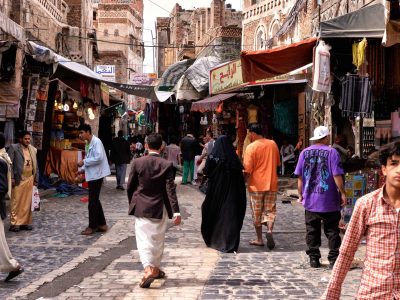Syria's netizens have been given another slap on the face with the banning of social networking site Facebook. With Blogger already blocked, the country's bloggers are fuming and have a lot to say about the latest development.
From Damascus, Golaniya sets the mood:
“Facebook is blocked in Syria, would I sound naïve if I said I didn’t see it coming? Why should I? How are the Syrians facebooking? Launching opposition campaigns? What's Facebook in Syria anyway? Active civil society? Syrian groups calling to overthrow the Syria regime? What's so dangerous about Syrian facebookers that they shouldn't be using it anymore? Or perhaps because the site is American so it should be blocked? Or maybe the Syrian officials have no idea what's Facebook except that it's an American and it's getting popular in Syria? All the above?
My theory? I think the Syrian officials don’t have a thorough idea how Syrians are facebooking, I think they did not block Facebook–the-site, but the unfamiliar reaction to this site, the unknown consequences of this reaction that might be very much, uncontrolled!” she rants.
Golaniya further explains the backlash the ban created – with more Syrian groups popping up on Facebook as a direct result of the censorship and how netizens are finding a voice despite the repression.
“Who lives in Syria knows that it's the country of “nothing's going on” except to hang out in old Damascus’ cafes, but recently there has been a cultural awakening; people are starting to organize their interests in concerts, galleries, conferences, plays, screenings…etc. and Facebook is facilitating the process which is very hard to do in an inactive militarily controlled society. There are no cultural institutions in Syria, no private independent NGOs, no civic institutions, who represent the populations except the government? Syrian Facebookers are trying now to represent themselves. Those who cannot be activists in a “real” Syria can be one in a virtual Syria,” she writes.
Her final scream for opening up the world wide web is loud and clear:
“We want Syria uncensored!” she wails.
Writing in Arabic, Alloush blog urges the authorities to reconsider the ban. He writes:
Facebook in Syria isn't that famous. Its distribution is very limited to the extent that many of those familiar with the Internet don't understand what the site is about. However, after news spread about its fame, it started growing in popularity in Syria and it then became natural to see large numbers of Syrians starting groups which support Syria and promote it, in addition to attempts to set up smaller networks for the Syria network on Facebook. Sudan has more smaller networks than Syria.
It seems that we have the largest number of blogs that are blocked, and now the largest social gathering is being censored as well as a huge number of sites. When a person starts analysing the reasons for the bans, he will end up with illogical and funny conclusions. For instance, my friend today informed me that the person who blocked the site may have done a mistake and instead of lifting the ban had imposed it. Soon, Google may be banned and with that the Internet in Syria will be an internal system only, which will enable you to surf through the websites of the companies which make ice cream and chewing gum. That would really be interesting. Blocking access to such sites which are rich in information causes damage to Syrians. First of all, they are a slap against the free promotion of Syria and secondly, they deny Syrians access to services which are available for people around the world. I hope those responsible for this policy would reconsider their censorship policies.
Another Syrian blogger Redman has come up with a better solution to thwart censorship. He writes:
I don't know if the discussion will end with this or whether anything we say would be of any benefit. Internet companies come up with new offers everyday and the cost of Internet access is cheaper than the price of potatoes (a kilos of potatoes costs 45 Liras) … but I have a suggestion: why don't we ban the Internet and ask the site owners to apply (with officials) to be allowed to have sites. The problem in Syria is that we don't know who orders the blocking of sites. The Minister of Transportation denied in a trial last week that his ministry was involved in the bans and said that he has not ordered any closures of sites.
Mohammed also uses humour to express his infuriation with the ban in this post. He notes:
By Allah, I am embarrassed and don't know where to start but I am certain that none of the Internet users in Syria were surprised when Facebook was blocked. I was surprised that it wasn't. Just imagine having a site which starts with w and ends with .com and not having it banned in Syria! I am thankful to God that it has been banned, so that we don't continue to live surprised.
He also has a suggestion for netizens, who are developing websites. He says:
I also have a suggestion to site developers in Syria. They should not populate their sites with anything because either way, it will be blocked and they would just be exhausting themselves for nothing. And then seriously guys, what does the Internet mean for us? Sites are blocked and the net is so slow it brings a heart attack. Why do you need the Internet? For emails? I have a solution for you. We can go back to using carrier pigeons. At the least, they are more guaranteed and faster than the Internet we have.




6 comments